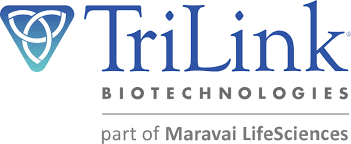
In the wake of the Covid-19 vaccine, mRNA research and development increased dramatically. However, as the demand for Covid-19 vaccines declines, the focus has shifted to applying mRNA science to treat other diseases, and the market is forecast to expand at pace in the coming years. According to GlobalData intelligence, there are currently 85 mRNA vaccines in late-stage development across 15 different indicators.[i] Additionally, 17 mRNA-based drugs across all therapy areas were either approved or in pre-registration as of April 2024, as well as an additional 112 drugs in Phase II or III development globally.[ii]
Amid this significant market growth, critical decisions in selecting suppliers of raw materials could provide the key for rising mRNA companies to stay competitive. Making the transition to commercial mRNA production is not straightforward, with the switch to good manufacturing practices (GMP) often posing a difficult obstacle. Notably, sourcing GMP-grade replacements for research-use only (RUO) materials is a process that must be considered carefully to ensure that stringent quality standards are upheld and regulatory approvals are supported.
mRNA drug developers can ease the stresses of this transition by planning ahead and communicating their requirements to trusted suppliers with GMP expertise. By considering quality, expertise, and service capabilities, mRNA manufacturers can find the right partners to accelerate the mass market introduction of their products.
Material grades make all the difference
While RUO materials are appropriate to use in the early research and discovery phases of the medicines, mRNA manufacturers should switch to GMP-grade supplies with stringent quality control, documentation, and traceability to meet safety and commercial regulatory requirements as the drug development stage progresses.
As drug candidates move into pre-clinical trials, it is helpful to start reviewing documentation and quality requirements for the raw materials used in drug production. Sourcing and identifying GMP-grade materials earlier allows sufficient time to assess available suppliers and the desired quality of materials for your program, enabling a smooth transition.
At this stage of the process, it is especially important to communicate with all internal and external stakeholders — e.g., quality, regulatory, procurement, supply chain — to minimize delays and misunderstandings. External partners, such as CDMOs and fill finish vendors, may have their own specific qualifications for the raw materials allowed into their facilities. Additionally, all stakeholders need to establish their expected timelines so that GMP-grade materials can be sourced at the right time to expedite development phases. Creating a detailed plan for each developmental phase can do much to ease the transition to mRNA commercialisation.
Selecting the right supplier in a crowded market
When it comes to choosing a supplier, mRNA drug developers should take account of all strategic considerations carefully. Expertise and record in supplying mRNA-related materials are essential given the fast-paced and emerging nature of therapeutic development in this area. The Covid-19 boom drove many new suppliers into the marketplace; while different suppliers seem to provide the same products on paper, GMP materials can vary based on sourcing, manufacturing, and analytical processes — and documentation to support them.
Suppliers’ credentials and track records should be thoroughly examined to determine the transparency of their quality policy and capabilities, including the documentation they provide for raw materials used in mRNA manufacturing. You can be better assured if their materials have gone through a rigorous regulatory process and have been used in approved treatments.
It is also important to consider a potential supplier’s capacity and ability to meet volume demands. This may include considerations for supplier location and global footprints for a fast and uninterrupted supply chain. In the fast-moving world of mRNA, programs can accelerate suddenly to a new development stage, and potential suppliers need to be able to scale up quickly and provide the necessary quality materials at short notice.
Having a supply agreement with the supplier can help you foster partnership, forecast the demands, and obtain sufficient supply even under tight circumstances. Being specific about your requirements for quality and regulatory support will help reduce the risk and complication in obtaining phase-appropriate materials from the suppliers.
Beyond the materials themselves, a supplier who can provide strong customer support at all stages of development will be your reliable partner. When technical support is required, having access to supplier experts who can answer queries and address arising issues will accelerate your drug development journey. Expertise, scalability, flexibility, and a willingness to communicate are all essential criteria to measure when comparing different suppliers.
Facilitating the future of mRNA development
A trusted partner of research institutions, pharma, and biotech companies for over 25 years, TriLink BioTechnologies is emerging as a leading supplier in mRNA manufacturing. Their revolutionary CleanCap® mRNA capping technology has helped drug developers ease mRNA manufacturing processes since 2017. Available in both RUO and GMP grades, TriLink’s CleanCap capping solution can shorten mRNA manufacturing processes by nearly a week, as well as at a cost 20-40% lower than other capping methods. Notably, three of their GMP-grade CleanCap analogues have already been used in three approved RNA vaccines globally.
Leveraging their decades of expertise in nucleic acid chemistry, TriLink also offers modified (e.g., N1-methylpseudouridine) and unmodified ribonucleoside triphosphates (rNTPs) — critical building blocks of RNA therapeutics and vaccines — in both RUO and GMP grades for seamless transition of drug development from discovery to clinical and commercialisation. They are ≥99% pure, built phase appropriately with orthogonal analytical methods.
TriLink’s facilities are ISO 9001:2015 certified, providing assurance that their GMP mRNA raw materials meet stringent requirements for identity, purity, and safety. Additionally, their dedicated team of experts is available worldwide to discuss customer needs, provide technical support, and accommodate quality audits.
In addition to mRNA raw materials, TriLink opened a new cGMP facility dedicated to late-stage mRNA production in April 2024, showing their commitment to enabling companies across all developmental stages in their mRNA programs. TriLink’s unique capabilities mean they are well equipped to support mRNA innovation at all stages — in providing raw materials as well as full services — whether the program is in early research or in making the transition to commercialisation.
With such adaptable, experienced partners on hand, mRNA medicines can be developed and commercialised far more efficiently, allowing life-saving new therapies to reach the market faster. To learn more about obtaining GMP-grade materials for your pharma or biotech projects, download the free reference guide on this page.
[i] GlobalData, The State of the Biopharmaceutical Industry: 2024 Edition (Mid-Year Update), p.37
[ii] Ibid.


